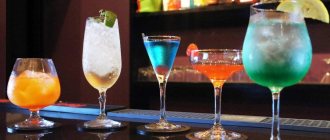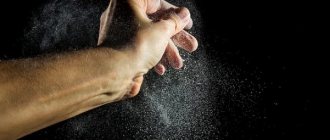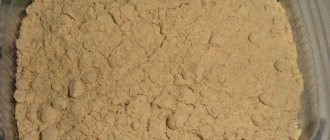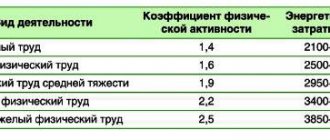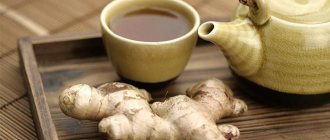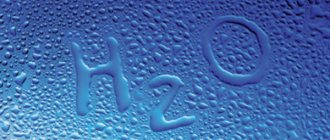- July 29, 2018
- Sports nutrition
- Yulia Shamshurina
Every athlete dreams of being the best in their field. Naturally, to achieve this goal, he strives to use all the resources of his body. Doping is illegal, but energy drinks are a legal way to improve your performance. But is it useful and how do they affect the body? Let's look into this.
Types of energy drinks
Drinks of this kind are divided into 2 categories.
- Energizing - designed to overcome fatigue and give the body new strength. These are just the well-known tonics (thanks to advertising) Red Bull, Burn, Jaguar and similar tonics.
- Energy - aimed not only at overcoming fatigue and increasing endurance. Designed for athletes, as well as people performing physical labor. The minerals they contain are designed to replace those that are released along with sweat during training/work.
Depending on the composition, hypertonic, hypotonic, and isotonic are distinguished. The difference among them is the amount of carbohydrates. There are a lot of them in hypertonic energy drinks, and few in hypotonic ones. Isotonic drinks are the golden mean. They also contain more minerals.
Pre-workout drinks and regular energy drinks: what's the difference?
“Pre-workout” is a type of sports nutrition that is typically used in bodybuilding. Pre-workout complexes have a stimulating effect, improve concentration and speed up recovery. How are they different from regular energy drinks?
“The composition of pre-workout complexes is somewhat similar to classic energy drinks,” says Inessa Tsarkova. — In addition to creatine and amino acids, they often contain taurine and guarana extract (caffeine supplier). Both are designed to artificially increase performance by stimulating the central nervous system.”
However, “pre-workouts” affect the body somewhat differently. “Pre-workout complexes, due to the content of amino acids, creatine and a vitamin-mineral complex, increase the productivity of training, increase strength and facilitate the restoration of muscle tissue,” explains Inessa Tsarkova. — Energy drinks contain caffeine and a large amount of sugar. The effect of energy drinks lasts longer (up to 4 hours), they have a worse effect on health and are more likely to cause addiction and dependence.”
You should choose such drugs in consultation with a personal trainer and doctor.
What is usually included in these miracle drugs?
Anyone who plans to drink these “elixirs” should understand that vigor and a second wind after taking them are not achieved through magical ingredients. The body is not a battery (a stone in the garden of the creators of “The Matrix”), it cannot be charged from the outside. Therefore, it is foolish to believe that by drinking an energy drink before a competition you will be able to increase your strength or speed, like Popeye the sailor by eating spinach. In fact, no matter what you add to a bottle of a drink with a bright label, it does not add new opportunities, but uses existing ones.
The energy drinks we are familiar with thanks to advertising usually have an identical composition. In addition to dyes, preservatives and flavors, caffeine is definitely added there. It is due to this that an increase in work capacity and concentration is achieved. For comparison, a cup of energy drink contains about 80 mg of caffeine. At the same time, the same amount of coffee will contain 10 mg less of this substance.
Another classic component is taurine. It also reduces muscle fatigue by inhibiting oxidation processes in muscles after exercise. Thus, the restoration of their ability to work occurs faster.
B vitamins (B6, B12) are also added to the drink. They affect the brain, improving memory and concentration.
Often, energy drinks contain guarana extract. Since this shrub does not grow in our latitudes and is not as advertised as tea and coffee, we know little about its effects on the body. However, the ancient Indians who lived in Brazil most often preferred its infusion as a stimulating drink. The fact is that it contains 2 times more caffeine than coffee beans.
By the way, this supplement itself can act as a professional energy drink. Guarana is often taken before running, cyclocross, swimming or rowing competitions, as a preparatory therapy. Please note that if the drink contains both this plant and caffeine, it means that the latter contains twice as much.
Ascorbic acid is often added to energy drinks. And this is by no means for taste. The fact is that this drug suppresses the secretion of cortisol. And this catabolic hormone promotes the accumulation of fat in the body and destroys proteins. It is produced as a response to stress, which can be the case for the body from sports training or excessive mental work.
Sugar and other glucose-containing substances are always present in most of these drinks. Glucose is able to quickly enter the blood and participate in the oxidative processes occurring there. It provides energy to the muscles, brain and other vital organs.
Is there any harm from drinking energy drinks?
Energy supplements not only have positive effects on the body, but their properties also contain many dangers.
More often than not, negative effects are not mentioned in advertising, but before purchasing any drug it is worth clarifying all its properties:
If you take energy drink together with other fat burners, it will pose a health risk
- The main part of the side effects is associated with the content of caffeine and its analogues. According to research, the negative impact of such stimulants on heart function has been established, and in addition, caffeine provokes an increase in blood pressure and can lead to arrhythmia.
- Most of the substances in energy drinks are of a chemical nature; as a result, the body absorbs only part of the elements, while the rest are metabolized in the liver and enter the bloodstream.
Considering a number of dangers, the use of energy drinks should not be carried out on a regular basis, but only in cases of increased need to increase strength and energy. Otherwise, the cardiovascular system will be quickly depleted and cause complications in the functioning of other organs.
In medicine, there are cases where, after consuming energy drinks, athletes’ hearts stopped. Other studies have found an increased risk of hepatitis after drinking energy drinks. As part of the same work, an experiment was conducted where a person took 4-5 energy drinks for 3 weeks, which ultimately led to acute liver dysfunction. After a biopsy, a severe form of hepatitis was discovered.
Specialized Supplements
As for narrowly profiled ingredients used in sports energy drinks, they are most often the following:
- Glucuronolactone - facilitates the exit of harmful substances from the body.
- L-Carnitine (Levocartinine) – has long been thought to enhance physical performance. Modern research has proven that this is a myth, but the substance continues to be added to many professional energy drinks and gels.
- Synephrine - used to burn fat. It acts on a principle similar to ascorbic acid.
- Folic acid.
- Magnesium.
- Sodium.
- Biotin.
In addition to the above, extracts from other plants known for their stimulating effect can be added to such miracle drinks. For example, extracts of ginseng, eleutherococcus, gingko biloba, green tea, grape seeds, etc.
Composition of energy workers
The effect of energy drinks is explained by the active ingredients in their composition. The main one is caffeine.
Caffeine is known to have a stimulating effect on the nervous system, and it is its presence in energy drinks that explains their characteristic effects on the body (both positive and negative).
The caffeine content of some popular drinks is listed in the table (if your favorite isn't listed here, use this table).
| Caffeine content in popular energy drinks | ||
| A portion | Caffeine content | |
| Red Bull | 340 ml | 114 mg |
| Burn | 480 ml | 160 mg |
| Adrenalin Rush | 235 ml | 79 mg |
| Amp | 473 ml | 142 mg |
| Monster | 473 ml | 160 mg |
| Rockstar | 473 ml | 160 mg |
| NOS | 473 ml | 160 mg |
| Full Throttle | 473 ml | 160 mg |
| 5-hour Energy | 57 ml | 200 mg |
Please note the difference in the dosage of caffeine: in 5-hour Energy, its content per unit volume is significantly higher (8 times) compared to others.
In practice, this means the following: if you drink this drink as much as the others (about 400 ml), then you can very easily “overdose” on caffeine, an overdose of which is life-threatening.
The difference in caffeine concentration is very important, since, as will be shown below, it is the caffeine that is responsible for the negative consequences of consuming energy drinks.
In addition to caffeine, energy drinks typically contain:
- Sugar : the main source of calories.
- B vitamins : participate in the conversion of eaten food into energy.
- Derivatives of the amino acid taurine and L-carnitine : both substances are produced in the body and play an important role in internal metabolism, including energy production.
- Herbal extracts : most often these are guarana
(a natural source of the same caffeine) and
ginseng (has a positive effect on the brain).
As you can see, the composition of energy drinks is very natural... Does this mean that it is safe?
Not always.
Many drugs are also natural (marijuana, opium), “harmless” caffeine can even kill...
According to experts, it is the combined effect of caffeine with other ingredients that explains both the addiction-forming effects of energy drinks and the potential side effects.
Energy drinks contain caffeine, sugar, vitamins, amino acids, as well as herbal extracts (guarana, ginseng). Caffeine is the main active ingredient, but some scientists note that it is the combination of ingredients in the composition that is responsible for both the positive and negative effects of their use
We recommend : [Scientific facts] Sports nutrition L-carnitine: what is it and what is it for?
Homemade energy drinks
Many professional athletes often use homemade energy drinks. After all, most ingredients can be purchased at pharmacies or regular stores. In addition, such drugs do not contain preservatives or flavorings with dyes.
For example, a mixture prepared from 3 bags of black tea and 20 ascorbic acid tablets (50 mg each) is considered classic. The tea is brewed for 5-10 minutes in 200 ml of water, after which it is poured into a 500 ml container + the required amount of boiled water. Next, vitamins are dissolved in the liquid, and everything is ready.
This drug can be used as an energy drink for running, cycling, swimming, rowing and other activities. It should be taken in small sips throughout the workout.
How to take energy drinks for bodybuilding workouts?
Nutrition for athletes is consumed according to various schemes and in different dosages, which depend on the level of stress, training experience, intake of other sports nutrition and other features. Most often, energy drinks are consumed 15–20 minutes before the start of exercise. For experienced athletes, drinking energy drinks alone is not enough to carry out a workout; they combine them with proteins, gainers, amino acids, BCAA, etc.
Energy drinks are recommended to be taken before intense training, and on other days their use can lead to the appearance of fat deposits. Doctors prohibit drinking 2 or more energy drinks at the same time or combining an energy drink with fat burning drugs. Additionally, while taking sports nutrition for energy, you should not take natural stimulants: coffee, strong teas, etc. The reason for the prohibition is a possible overdose of caffeine, as well as a negative effect on heart function and sleep patterns.
Homemade decaffeinated energy drink recipe
You can make this drug without caffeine. In 0.5 l or 1 l of warm (not hot) mineral water dissolve 2-3 teaspoons of honey + juice of one lemon, 0.15 - 0.30 g of succinic acid and a little alcohol tincture of eleutherococcus/ginseng.
This should be taken after everything has cooled down, no earlier than 15-30 minutes before the start of physical activity. You can also drink during training in small portions.
This drink can be used as an energy drink for running. However, before you decide to use it, it is worth checking the body’s reaction to each of the components, since lemon juice and honey are the strongest allergens, and eleutherococcus and ginseng significantly increase blood pressure.
Energy drink dosages: how to take
- The dosage of caffeine per day should not exceed 200 mg. The supplement must be taken half an hour to an hour before training.
- The dosage of Cordyceps will vary depending on the purposes, you should follow the instructions on the package label. The product can be taken 45-60 minutes before physical activity. The effect will be especially pronounced during endurance work, but is also great for weightlifting.
- The standard dosage of synephrine is only 10-20 mg daily. Synephrine is best used before meals to suppress appetite and increase metabolic rate.
Positive influence of energy drinks on humans
Do these drinks really help? This question is asked by everyone who has ever thought about using them. To be fair, it is worth admitting that yes, they really can help cope with fatigue. By interfering with the metabolic process, they speed up muscle recovery or even prevent them from getting tired.
For example, glucose (which is in abundance in such a drink) is quickly absorbed into the blood, interfering with oxidative processes, and delivering energy to the muscles and brain.
Also, these drugs can speed up metabolism and help fight the formation of excess fat. Please note that energy drinks can stop the appearance of a new one, but do not in any way affect an existing one.
In addition, they have a positive effect on muscle elasticity, preventing stretch marks. Energy drinks also take care of the “nutrition” of cells, preventing them from “starving” or losing such important microelements.
Needless to say, all these praises apply specifically to professional drinks, and not soda with additives?
The basis of energy drinks is guarana and caffeine
Most energy drinks are made from natural substances guarana
and
caffeine
. These components make training more effective by speeding up metabolism and stimulating the activity of the central nervous system.
Guarana and caffeine provide additional energy, improve concentration and reduce feelings of tiredness and fatigue. At the same time, guarana has a longer lasting effect and is gentler on the digestive tract.
Features of pre-workout complexes
consists in a comprehensive solution to the issue of preparation for high-intensity training. These are complexes of components whose action is aimed at improving performance, increasing blood circulation, combating fatigue and readiness for heavy loads.
Energy drinks are a quick and convenient way to get energy.
and
energy gels
. They are always in the bag of athletes who have to train for a long time. These fuel sources are ready to consume and can be consumed on the go. A couple of sips - and the body is charged and gets a “second wind”.
And finally, the most common source of energy for everyone is carbohydrates.
. It is they that enter the body that are converted into glucose, which is spent on the body’s energy needs, gaining strength and increasing endurance, as well as fighting fatigue.
Do energy drinks help with running and other workouts?
In the field of professional sports, energy drinks are produced not only in the form of drinks, but also gels, bars, powders, capsules and tablets. In fact, they are a component of any athlete's nutrition.
To achieve the desired effect, it is necessary to select the right drug. The fact is that many of its components are also found in ordinary food products. And their excess contributes to disruption of the proper functioning of the body.
If the stimulant drug is chosen correctly, it can reduce fatigue during sports and increase endurance.
Should I take professional energy drinks before long-distance races?
Track and field athletes are among the most active consumers of these substances. Most often they use energy drinks for long-distance running. During such marathons, the body requires a lot of energy. And this is exactly what these drugs provide.
The most common form of running energy drink is a drink, gel or bar. The first and second options help restore strength. The third is to cope with thirst and compensate for body losses through sweat.
However, professionals (who recommend using energy drinks for running) advise preparing the body first. If this is not done, the body may, out of habit, inadequately perceive this “feeding”. So before running, you should take an energy drink for at least a week during training. In this way, the body will learn to perceive it as a natural way to recharge.
Iced tea with ginger and lemon
You will need:
- ginger root - 15 g;
- lemon - 1 pc.;
- loose leaf tea (black or green) - 5 tsp;
- mint - 2-3 sprigs;
- boiling water - 1.5 liters;
- ice;
- any sugar - 5-6 s. l. (taste).
View this post on Instagram
Iced tea with ginger and lemon will also help you escape the heat and recharge your energy. First you need to peel the ginger root, grate it on a coarse grater or finely chop it with a knife. Then load it into a large heat-resistant container and add dry tea leaves. Next, grate the lemon zest with coarse shavings and add to the ingredients. Important: you only need the yellow peel of the citrus, the white part will be bitter. Next, squeeze the juice out of the lemon pulp and put the resulting juice aside.
The mint sprigs must be washed, shake off drops of water and placed in a container to prepare the drink. Then pour boiling water over the mixture and dissolve any sugar in the hot broth. When the tea has cooled to room temperature, pass it through a fine sieve. Add lemon juice to the strained tea. All that remains is to cool the drink in the refrigerator, pour into glasses and add a few ice cubes. For beauty, you can supplement the serving with citrus slices and mint leaves.
Under the open sky: how to eat in Moscow if you haven’t received a QR code yet?
Should you drink regular energy drinks before a run?
The effectiveness of professional preparations of this kind mentioned above is well known today. Therefore, many schoolchildren and students, on the eve of taking their athletics tests, are seriously thinking: should they drink an energy drink before running? Having become victims of advertising, they do not see the difference between specialized sports drugs and caffeinated soda.
So, what happens if you drink the energy drink from the commercial before running? Most of those who tried it note that they did not feel the expected vigor and endurance. But they got an increased heart rate, as well as a dry mouth and, as a result, thirst.
There were also those for whom this drink supposedly helped. However, they are in the minority and most likely result from a placebo effect. Or they have previously been joggers. Professional athletes note that even if the energy drink works as expected and gives strength, a beginner will still not be able to adequately overcome the distance. After all, if breathing is not done correctly, no miracle drug will help.
All that glitters is not gold, or the negative consequences of energy drinks
Like any drug, stimulants of this kind have a number of side effects. If we are talking about energy drinks from advertising, then the harm from them is due to their components. First of all, they hit the kidneys and liver. Moreover, this harm is caused not so much by caffeine, guarana and other stimulants, but by dyes and preservatives.
Only the lazy did not talk about the harm to the heart and nerves of such drugs. Long-term use can lead to irreversible changes. However, a similar effect also occurs due to the abuse of coffee and other invigorating tinctures a la Eleutherococcus and ginseng.
Don't forget that energy drinks are addictive - and this can hardly be considered a positive thing.
It is important to remember that all such compounds are high in calories. If they are taken during training, all the “extra” calories will be consumed in the process. When they are used to perform intellectual work, the body does not have time to burn them, and they settle on the waist.
Coffee, alcohol and energy drinks
Since these drinks don't always help as much as hoped, some try to boost them with an extra dose of caffeine in the form of a cup of coffee. However, such experiments can cause cardiac arrest.
The other extreme is the combination of these drinks with alcohol. Some cafes even make such cocktails. But mixing these liquids often leads to poisoning. The fact is that energy drinks speed up the process of alcohol absorption by the body. Thus, less of it is required to become drunk or poisoned.

